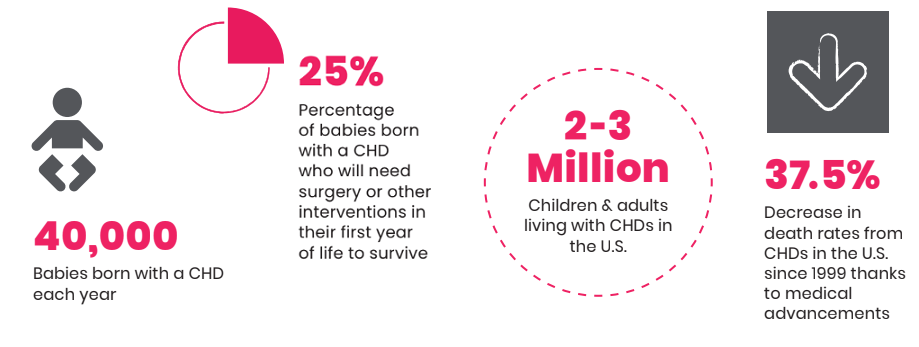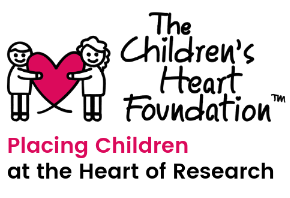About Congenital Heart Defects
Congenital heart defects (CHDs) are problems present at birth that affect the structure and function of the heart.
CHDs are America’s most common birth defect, affecting nearly 40,000 babies each year in the U.S alone. This equates to 1 child every 15 minutes.
Click here for more CHD facts and statistics.

Watch the video below for more about congenital heart defects and to learn why The Children's Heart Foundation is dedicated to funding CHD research.
Some CHDs are diagnosed during pregnancy using a special type of ultrasound called a fetal echocardiogram. However, some heart defects are not found during pregnancy. In these cases, heart defects may be detected at birth or as the child ages.
As medical care and treatment have advanced, thanks to research, infants with CHDs are living longer and healthier lives. Many children with CHDs are now living into adulthood. It is estimated that more than two million individuals in the United States are living with a CHD.
Even with improved treatments, people with CHDs are not cured, even if their heart defect has been repaired. People with a CHD can develop other health problems over time, depending on their specific heart defect, the number of heart defects they have, and the severity of their heart defect. It is important for people with a CHD to visit their doctor on a regular basis and discuss their health, including their specific heart condition, with their doctor.



